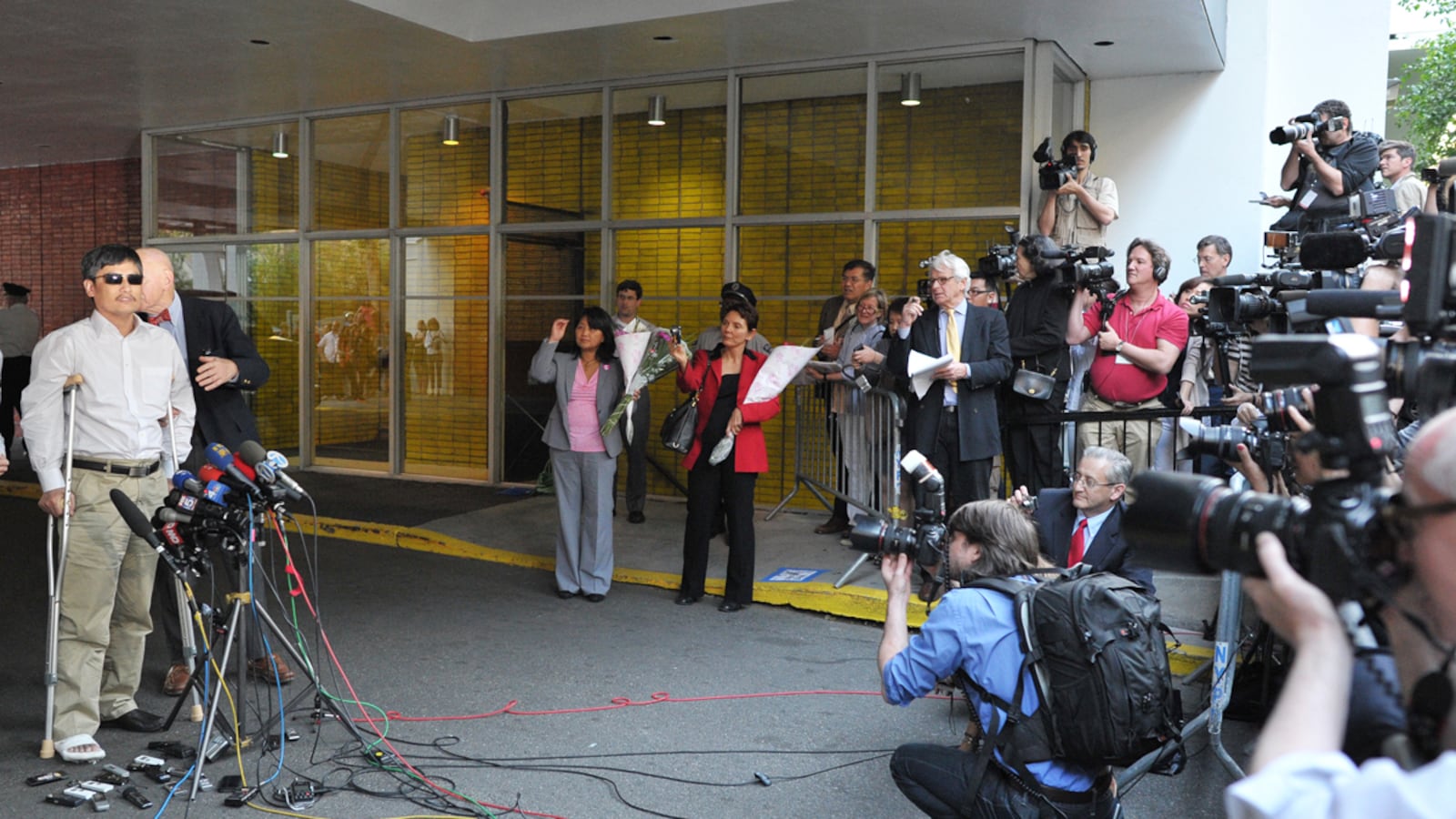Just five weeks ago, Chen Guangcheng was living under house arrest in the small hamlet of Dongshigu, in China’s southeastern province of Shandong, with no access to the Internet and no means of communicating with the outside world. But on Thursday morning, the now-famous blind activist found himself in a tony Park Avenue mansion, home to the Council on Foreign Relations, the Manhattan-based think tank that has driven U.S. foreign policy positions for generations.
In a charcoal suit and deep red tie, Chen seemed less like a wide-eyed village mouse than an elated philosopher ready to embrace his seat among the world’s power players, and relishing his time in the spotlight. He quoted Confucius and Karl Marx, criticized China’s purported retaliation against his family members, expressed notable optimism about the democratic prospects for his homeland, and had a hard time getting off the stage.
“Nobody can stop the progress of history—not even the central government,” Chen told the audience through a translator, adding that while he thought such progress was inevitable for China, it would also be slow. “Many people, they want to move the mountain in one week. But that’s not realistic. We have to move it bit by bit. Everyone needs to help. We can’t do it overnight.”
It was Chen’s first public appearance since arriving in the United States earlier this month, and he used it to reinforce the themes he had spelled out a day earlier in an op-ed for the New York Times. He drew stifled laughs in comparing the investigation of party official Bo Xilai with the story of another official who tried to cover up a long-term affair by blowing up his mistress with a remote-controlled bomb. But Chen still drove the point home: China’s problems aren’t its laws, but in the lawlessness that comes with letting members of government act with immunity. The legal situation has deteriorated, he said, because of the Party’s attempts to “put a lid on their problems. Then, the bigger they get.”
“If you do not act fairly, who can you expect to act fairly?” Chen said, quoting Confucius. “If you do not observe the law, how can you ask others to observe the law?”
Recounting the tense days following his escape from house arrest, Chen sounded a diplomatic note. After being given refuge by the U.S. embassy, it was initially announced that he would stay in China. But hours later, in an interview with The Daily Beast, Chen said that after hearing his wife talk of being beaten by Chinese officials, he desperately wanted to go to the United States, and even hoped to get on Hillary Clinton’s plane.

“I didn’t change my mind,” he said, sounding every bit the lawyer as he clarified that when he said he didn’t want to go to the United States initially, what he really meant was that he didn’t want asylum. “After I left the embassy, I enjoyed the rights the government gave me. One of those rights is freedom to travel in and out of China…. I came to study. Because it happened so quickly, people think that something happened, but if I’d waited 6 months they would have thought nothing of it.”
Chen, who is in New York City on a fellowship at NYU’s law school and living with his family near Washington Square, refused to answer a question about what he would do if China denies him the right to return to his country. “Let’s not make assumptions,” he said “They let me come. They’re doing the right thing. We should affirm that.”
At one point, Chen was interrupted by moderator Jerome Cohen, an NYU law school professor and long-time friend. “Give other people a chance,” Cohen told him in Chinese, prompting a broad smile. “I have too much to say,” Chen replied.
Indeed, as the event came to an end and attendees began to stream out of the room, Chen suddenly stood up. “I have two things to say,” he said. “There is no such thing as a difficulty that can’t be overcome. I think that every person, if you try hard, you can do so much better than I can.”





